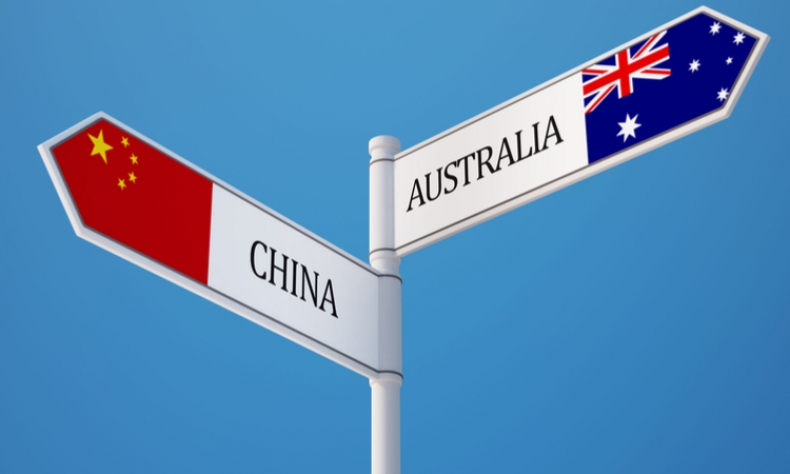
Insight Talk: China-Australia Relations Will Not Recover Without Trust
The decline of Chinese investment in Australia for the past four years clearly points to the essence of problems in bilateral relations: the lack of trust, without which neither economic cooperation or people-to-people exchange is expected to thrive.
Editor’s Note: The China-Australia relations have been spiraling down due to a number of disputes in trade and diplomacy. In a video interview with China Focus, Dr. Dan Hu, Assistant Professor and Deputy Director of the Australian Studies Center at Beijing Foreign Studies University, gives her insights on why the bilateral relations went down and how can the two sides mend them.
China Focus: China has announced to suspend economic dialogue with Australia due to Australia’s unfriendly actions against Chinese business. How did Australia respond to China’s decision?
Dr. Dan Hu: Trade Minister expressed his disappointment with the decision, saying “the Strategic Economic Dialogue…is an important forum for Australia and China to work through issues relevant to our economic partnership” and “We remain open to holding the dialogue and engaging at the Ministerial level”.
Opposition Leader said “we do need dialogue with China” but it needs to be “on both countries’ terms”.
While the political circle seems to be rather calm, the business community is demonstrating far more concern. The Australia China Business Council commented in its press release on the suspension that “it marks a new low in the relationship, one that is of deep concern to the business community”. Dismissing some commentaries in Australia the describe the suspension as “largely symbolic with little immediate impact on trade”, the ACBC remarked that “this is a serious diplomatic challenge” and impact will be seen “over time”.
China Focus: What impact will this decision have on Australia?
Dr. Dan Hu: As the Trade Minister himself admitted, “the Strategic Economic Dialogue…is an important forum” and a regular dialogue that previous governments worked so hard to build and maintain with China, including Morrison himself. The last time when the dialogue was held in 2017, Morrison, as the then Treasurer, signed two MOUs with the NDRC, including one on partnership in third party markets, which could have taken the bilateral relations to a new level.
Australian officials have complained on various occasions that their Chinese counterparts are not taking their calls. Now with the Strategic Economic Dialogue suspended, as some have joked, the telephone line is officially unplugged.
China Focus: As known, Australia frequently interferes in China’s core interests and internal affairs, yet reacts exasperated when confronted by China on these issues. What kind of mentality is Australia displaying and why?
Dr. Dan Hu: It is first important to note that there exists a wide spectrum of opinions as to Australia’s policy and approach towards China. However, the past five years, particularly the last two, have witnessed a shrinking space for nuances and pragmatism.
Australia’s China policy took a clear turn around 2016 and 2017. It is certainly about Australia’s choices amid shifting geopolitics and a conservative government trying to appeal to a more nationalistic population before the next federal election, but it is also rooted in a dangerous assumption that the majority of the government and politicians have held about China relations: the assumption that Australia does not have to choose between China and the US and in spite of what Australia may say or do, business will go on as usual.
China Focus: Australia has long been benefiting greatly from the trade with China. But why has Australia placed strict restrictions on Chinese investment?
Dr. Dan Hu: Foreign trade and investment are transnational economic activities of very different nature. Foreign investment, in particular direct investment, always results in a presence in a foreign country or a degree of control over a foreign company. The kind of scrutiny countries give to investment is always much higher than trading activities.
Chinese investment has long been a subject of controversy and anxiety in Australia, dating back to as early as 2007, when capital inflow from China started to be substantial and has concentrated through the years in mining, agribusiness and infrastructure. SOEs dominated the landscape for quite a long time too.
There is first the reality that Australia has traditionally been quite protective about its businesses, which in part is understandable in that it enjoys rich natural endowments, which are often sought after by foreign investors. It is thus not surprising that Australia was one of the few countries in the world to start screening foreign investment separately, having institutions and legislations in place as early as the 1970s and 1980s.
So when geopolitics started to shift and the government’s overall China policy started to turn, Chinese investment in the more sensitive sectors easily became targets of suspicion and anxiety.
China Focus: In face of current difficulties, how can China and Australia do to improve their bilateral relations?
Dr. Dan Hu: As the former PM Tony Abbott noted in his introduction of President Xi Jinping to the Australian Parliament in 2014 before his speech, he said “we trade with people when we need them, but we invest with people when we trust them”. The decline of Chinese investment in Australia for the past four years clearly points to the essence of problems in bilateral relations: the lack of trust, without which neither economic cooperation or people-to-people exchange is expected to thrive.
As I noted in a commentary that I published in Australia earlier this year, bilateral relations are not at its lowest ebb yet, if we examine the fundamentals of bilateral relations, practical constraints in particular on the Australian government to effect a fundamental turn of its policy and approach towards China. Before that happens, bilateral relations will not recover.
 Facebook
Facebook
 Twitter
Twitter
 Linkedin
Linkedin
 Google +
Google +










